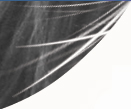Coaching skills have a special relevance in equestrian sports, beyond all other sports, because they are vital not only for coaches but also for riders.
It is obvious that riders need good coaches, as any sports people do, and good training for these coaches is an integral part of success for the sport as a whole as well as for competitors from every level from novice to elite level. However it is a light bulb moment for most riders to discover that they also need coaching skills if they are to fulfill their potential. But it is a no brainer:
Every rider becomes a coach of their horse, for better or worst, as soon as they make their first contact with them.
A rider needs the full armoury of standard coaching skills to make the most of their student, the horse. They need to listen to their student and keep the right balance between effort and delight. They have to plan the training programme for the horse, as well as themselves, and be good communicators, building trust and understanding. They need to reward the behaviour they want repeated, building confidence and competence.
They need to make their student independent of them, to stand on their own 'four' feet and look after the rider, whether it is when jumping or doing a series of sequence flying changes. The list goes on and on and emphasises why riders need to be good coaches of their horses if they are to be successful. So many potentially good riders fail because they treat their horses as a machine and are unable to 'coach' their horses.
In addition the good training of coaches is the most important part of any plan for performance success and is the most efficient way to make a difference to riding standards. Sadly we have often not served our coaches very well in the past, often leaving them ineffective and disheartened, with many of the best leaving the sport. On the other hand good coaches thrive and build wonderful years and wonderful sport for both their students and themselves.
Good coaches can be produced with good training. We have to raise the bar and believe in the potential of our young coaches and the sense of investing in them. Nothing is more important. This is why I now make this my top priority and interest.
Coach education is the top priority for all equestrian organisations because a coach influences so many people, and their work is immediately spread by their students and will continue to live on far beyond their lifetime. In addition coach education is vital for all riders as every rider is a coach of their horse. The core skills and qualities of a coach... patience, a positive attitude, simplicity, enthusiasm, planning and goal setting... are also vital for riders.
William's extraordinary tool for improving performance, Habitual Hats, is at it's most effective
for training coaches.
|




